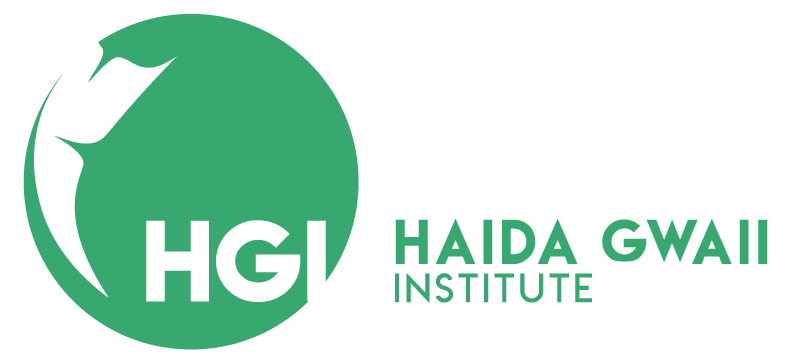About Haida Gwaii
Semesters
Haida Gwaii Semesters
A microcosm of the world, Haida Gwaii is an unparalleled setting for students to learn first-hand about the complex social, cultural, political, ecological and economic issues facing communities around the globe, converging at a local scale.
We offer several distinct Haida Gwaii Semesters; these are intensive 14-week programs designed for senior undergraduate students from a wide range of universities and disciplines. Each semester provides a full course load, including four courses that run in successive three-week blocks and a fifth project-based seminar offered weekly throughout the entire term.
Course Accreditation
Our courses are accredited by the University of British Columbia. After successful completion of a semester, students will earn fifteen 300-level UBC credits that can be transferred back to their home universities. Each course provides an integrated, interdisciplinary perspective and has a carefully developed schedule to balance classroom instruction with a variety of field activities and guest talks.
“The Haida Gwaii Semester represents a tremendous opportunity for students to learn actively about a community, its surrounding forest, and their interdependence. UBC is pleased to be involved in this endeavour.” ~ Peter Marshall, Professor, UBC Faculty of Forestry, and member of the HGI Advisory Council
Our Learning Environment
Each program has a different classroom space, depending on which community the program operates in primarily. In addition to in-class lectures and course work, students will also explore the incredible natural environments, meet with local experts and knowledge holders, and become immersed in the Haida Gwaii community..
“It has been great to finally see the Ḵay Centre being used for one of the main purposes it was built. To provide educational opportunities and showcase to the world what Haida Gwaii has to offer.” ~ Jason Alsop, Haida Heritage Centre at Ḵay Llnagaay
Read more about what sets the Haida Gwaii Semesters apart from other types of university programming






